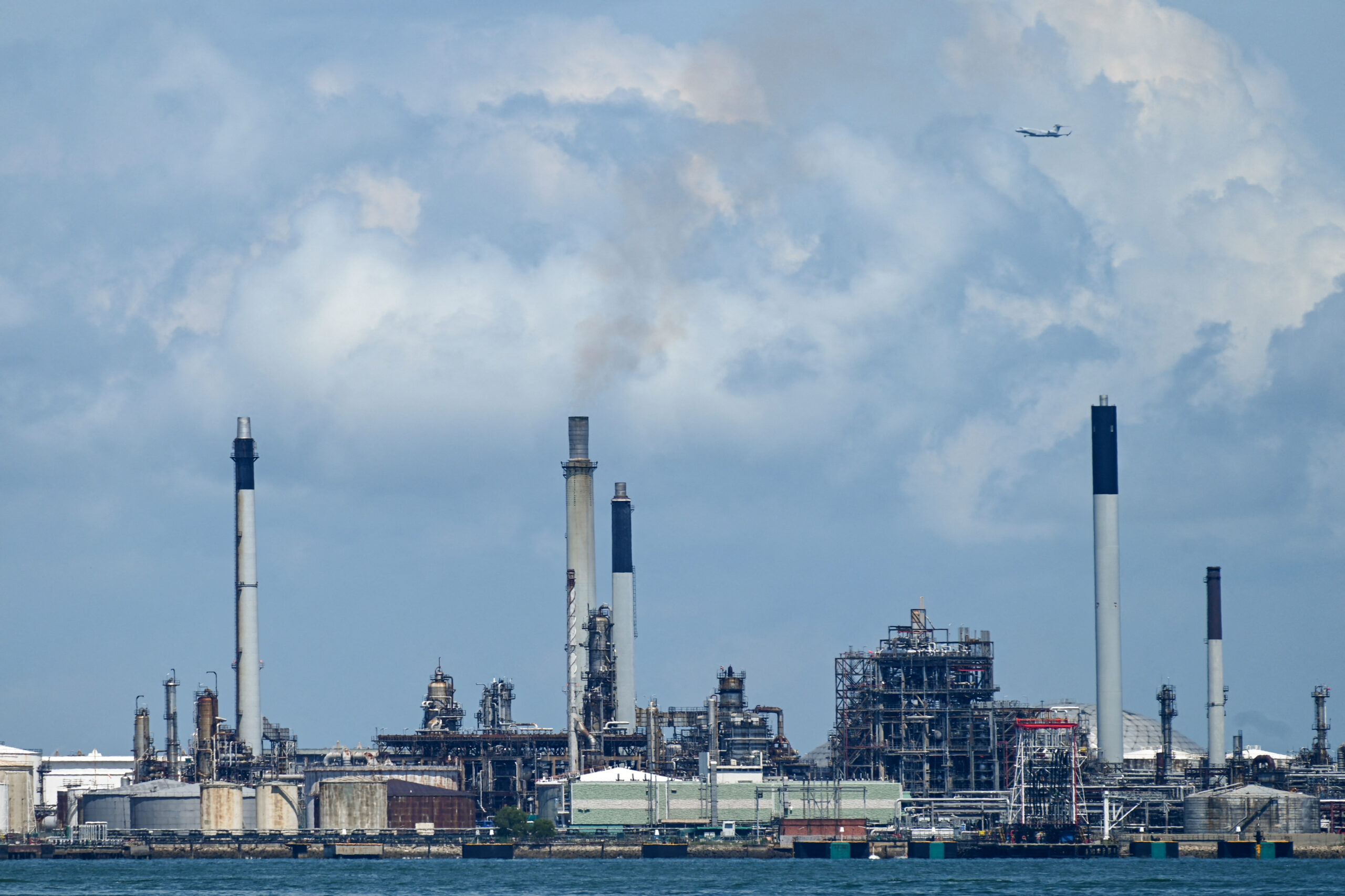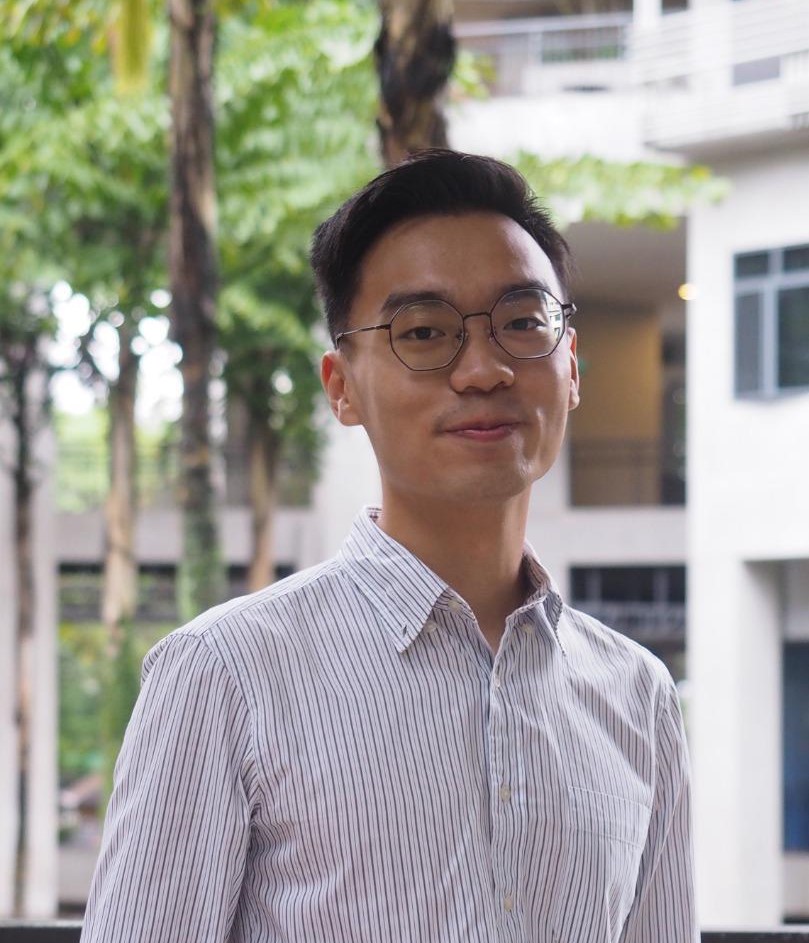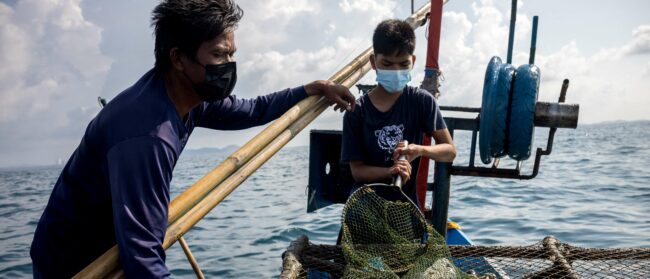Students from universities in Singapore are calling for their institutions to reassess their relationships with fossil fuel companies.
A recent report by Students for a Fossil Free Future, a coalition of campus groups from National University of Singapore, Nanyang Technological University (NTU), Singapore Management University and Yale-National University of Singapore (Yale-NUS), detailed the relationship between their institutions and major companies in the fossil fuel industry.
Published in January 2022, Fossil-Fuelled Universities highlights the links between universities and companies in finance, management, academia and professional development.
By publishing the independent report, Students for a Fossil Free Future hopes the findings will begin conversations about what the organisation says are the negative impacts of these relationships. The report’s conclusion suggests a multi-step plan for universities to divest from fossil fuel funds. By the first week of February, a petition supporting the plan had received nearly 170 signatures.
The report and the formation of Students for a Fossil Free Future in June is adding to a regional trend of young climate activists – from recently released environmental advocates in Cambodia to climate-focused influencers in Singapore – holding institutions and governments accountable for climate action.
Southeast Asia Globe spoke with Students for a Fossil Free Future coordinators, Shawn Ang, who is 23 years old and studying environmental Earth systems science at NTU, and 21-year-old Yiran Ning, who majors in environmental studies at Yale-NUS.

The two coordinators discussed the debate over accepting fossil fuel funds and their aspirations for universities and companies to meet them in the middle.
Why did you focus specifically on funds from fossil fuel companies?
Shawn Ang: If we’re really concerned about climate change and the climate crisis, then one of the foremost driving factors is still fossil fuels and how our world is not moving away from them. We think that’s one problem. But the other problem is we’re still not having these conversations about fossil fuels and if we don’t start to have these conversations, then nothing is going to change.
How has your position as students of these institutions affected your advocacy?
Yiran Ning: There are people who think we can play an important role in contributing to our society, especially as young adults who have been educated in our nation’s flagship universities. But there are also others who underestimate our ideas and criticise us for lacking real world experience and sounding naive.
It is honestly a struggle I am still dealing with because it is true I don’t have any industrial experience. I have not worked in a fossil fuel plant. But the important thing is for us not to limit the conversation to people who have technical expertise because this is an issue that affects so many more of us. Everybody deserves a say. That is one of the most important parts of this: making sure our energy transition is inclusive.
How would you describe the view of your communities on these links between universities and companies?
Ning: It is clear the relationship between universities in Singapore and fossil fuel companies is very normalised. People don’t think it is anything to be questioned or problematised. The brands of fossil fuels appear everywhere in our universities. Our campaign is not trying to say branding is a bad thing. We’re trying to say our university should not be lending positive branding to these companies if they are unable to commit to something as existential as the energy transition.

Ang: For Singapore, we do feel our universities have especially close ties with these companies because the fossil fuel industry is a cornerstone of our economy.
Can you explain what you say are the downsides to these relationships?
Ang: One important concept we are trying to bring to the public conversation is the associations these companies have with our universities. They sponsor a myriad of different things that create a positive association between our universities and these companies.
We think this gives companies a social licence to operate. This builds a positive brand image for these companies that does not consider the less positive things they do on a daily basis. It is very harmful because in a sense it is like a Get Out of Jail Free card for all the bad things these companies are doing.
It is great they’re working to positively contribute to our educational system, but just because they do that we don’t want to discount everything else they are doing. We still want to hold them accountable.
Ning: Funding affects people’s agendas. This might be intentional or unintentional. For example, if my scholarship is funded by let’s say, [petrochemical company] Shell, I might catch myself from saying anything critical about Shell.
We know the psychological influence is probably there and so we want to start questioning that, especially when it comes to doing research about fossil fuels. Given that universities are at the forefront of academic research, it is very important for universities to be impartial. It is important for us not to let any agendas influence the decision that, for example, an academic makes when they decide what to write in their report or how to frame their report.
What are your thoughts on this response from Shell to the Globe?
“Shell has a longstanding relationship with institutes of higher learning in Singapore,” a Shell spokesperson said. “We value our partnership with institutes of higher learning to create awareness, dialogue and action, so youths can share their voice and contribute to the energy transition.”
Ang: Halving Singapore’s crude processing capacity is a positive step. However, we highlight that the transition must be just. We hope that Shell will fulfil their social responsibility to invest in retraining and re-skilling for workers who have contributed to the company’s success over the decades. These workers should not be left to fend for themselves without support.

However, to date, we don’t see substantial investment in renewables and cleaner technologies equivalent to what would be required if Shell were to fully commit to a true energy transition. These investment amounts remain vanishingly small compared to the resources Shell continues to dedicate to its fossil fuel operations.
We recognise the importance of good faith in engagement, but fossil fuel companies such as Shell have used 30 years of good faith to haul in massive profits without undertaking substantive change. We believe their highlighted efforts are a continuation of this intent, and we have yet to see significant evidence that they are taking the lead on the energy transition.
Thus, we continue to object Shell’s “longstanding relationship with institutes of higher learning in Singapore,” as we believe that more than creating “awareness, dialogue, and action,” it is simply a greenwashing tactic for Shell, as it is for the other fossil fuel companies we’ve highlighted in our report.
The report states academia being linked to the fossil fuel industry could lead to a form of self-censorship and thus a “chilling effect on academic freedom.” Why is that so significant?
Ang: Singapore places quite a bit of emphasis on what experts think. So, given that universities are home ground for experts, it is important they are not affected by these kinds of influences.
Our universities are thought leaders, especially in these areas that are more niche where the general public would look to our researchers and our academics to know what to think. So what our academics and thought leaders say or not say will shape public opinion. That public opinion is going to shape our government and thus shape our policies.
Is there a middle ground between your organisation, your universities and these fossil fuel companies? What would have to happen for you to be comfortable with the relationship between universities and companies?
Ang: There is absolutely a middle ground. In an ideal world we would be able to work in good faith with these companies because they have resources, expertise, technology and the manpower to really make such a positive contribution to the energy transition of our societies.
But what we’re concerned with is we don’t see any of these companies doing that, which demonstrates to us they’re not serious about this transition. If we are going to keep working with these companies, then we need to trust them to be good faith actors and not undermine our entire society’s effort. That is the crux of why we are raising this campaign.
One thing we settled on is asking to look at the numbers. We want to compare the resources these companies are putting into funding renewable research and how that compares with the scale of their operations. If we can see the former is just vanishingly small, then that is a fair assessment that maybe these companies need to be doing more with the scale of the resources available to them.
We hope by doing this, and if our universities support us, we can encourage and incentivise these companies to really make the most sincere commitment to climate action in their own capacities. When we reach that point where we can see that they are taking action, we will be so glad to work with them again.
What do you hope this report and your advocacy will have done after you graduate? How do you hope it will affect future students?
Ning: In the long term, I hope this helps universities think about their role in leading our society’s transition away from fossil fuels. Our universities are inadequate when it comes to climate change education. Not just about the science, but about the social, economic and cultural aspects.
We need to think about how we can educate our students and how we can structure our education system in a way that doesn’t encourage students to go into industries that are declining, like fossil fuel industries. And instead turn them to jobs that are actually green and good for our society.
Ang: We hope if our universities can make the first move on these bigger climate action things, then that can lead other public and private institutions in our country and also regionally to take up this mantle and do what we think needs to be done for climate action.
What’s next for Students for a Fossil Free Future?
Ning & Ang: In the coming month, we hope to dialogue with our universities’ administrations and leaders on our report’s findings and recommendations. We want to have a chance for both sides to hear each other out and exchange perspectives, before finding a middle ground for us to collectively and collaboratively move forward in taking steps toward a just transition.
In August 2022, at the start of the next academic semester, we will launch a memo that updates on our universities’ progress towards a just transition, to hold our universities accountable and as part of our group’s commitment to transparency on these issues that affect us all.
This interview has been edited for length and clarity.


